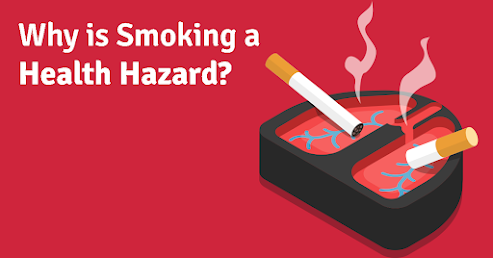Unveiling the Dark Side: The Disadvantages of Cigarettes
Introduction:
Smoking cigarettes is a dangerous habit that puts one's health in peril, as is common knowledge. Even though most individuals are aware of the risks associated with smoking it still poses a substantial threat to public health. It is crucial to shed light on the numerous disadvantages associated with cigarettes to encourage individuals to make informed choices about their health. This article explores the detrimental effects of smoking and highlights the multifaceted disadvantages cigarettes bring to both smokers and those exposed to secondhand smoke.
Health Hazards:
The most glaring disadvantage of cigarettes is the detrimental impact on health. Smoking causes millions of early deaths globally and is a significant risk factor for many diseases that can be avoided. The respiratory and cardiovascular systems are severely harmed by the substances in cigarettes including nicotine tar carbon monoxide and several carcinogens. Smokers are more likely to develop heart disease stroke lung cancer chronic obstructive pulmonary disease (COPD) and other malignancies.
Addiction and Dependency:
Cigarettes contain nicotine, an addictive substance that hooks users both physically and psychologically. Nicotine addiction makes quitting smoking a challenging endeavor, leading to a cycle of dependency that perpetuates the detrimental effects of smoking. Breaking free from nicotine addiction often requires significant effort, willpower, and support.
Financial Burden:
Smoking is not only a detriment to health but also to one's finances. Since cigarettes are costly, smokers and their families may eventually face a considerable financial burden that prevents them from meeting other basic necessities like food, education, and healthcare.
Social Disadvantages:
Smoking carries social disadvantages that have become increasingly pronounced in recent years. Because of the risks of secondhand smoke becoming more widely recognized smoking restrictions in public areas, workplaces, and even private residences have become increasingly prevalent. As a result, smokers often face social stigma and isolation. Furthermore, the smell of smoke and cigarette residues might stay on one's breath, clothes, and hair, giving off an offensive odour to others.
Environmental Impact:
The negative consequences of smoking extend beyond personal health to the environment. The most prevalent type of litter in the world is made of harmful chemicals and non-biodegradable filters: cigarette butts. They not only mar the aesthetic beauty of public spaces but also contaminate waterways and harm wildlife. Furthermore, the production and transportation of cigarettes contribute to carbon emissions and environmental degradation.
Adverse Effects on Others:
In addition to harming the smoker's health smoking is detrimental to others who are exposed to secondhand smoke. Nonsmokers who breathe in secondhand smoke run a higher risk of acquiring lung cancer, cardiovascular illness, and respiratory issues. Children who are exposed to secondhand smoke have an increased risk of developing asthma ear infections and impaired lung function.
Conclusion:
Cigarettes have numerous negative effects on many facets of life including one's own health finances interpersonal relationships and the environment. Recognizing and understanding these disadvantages is vital for individuals considering smoking or contemplating quitting. Creating welcoming surroundings and putting regulations into place that discourage smoking, help quitting, and shield non-smokers from the perils of secondhand smoke are equally crucial. By banding together, we can work towards a world without smoking that puts people's health and wellbeing first.






